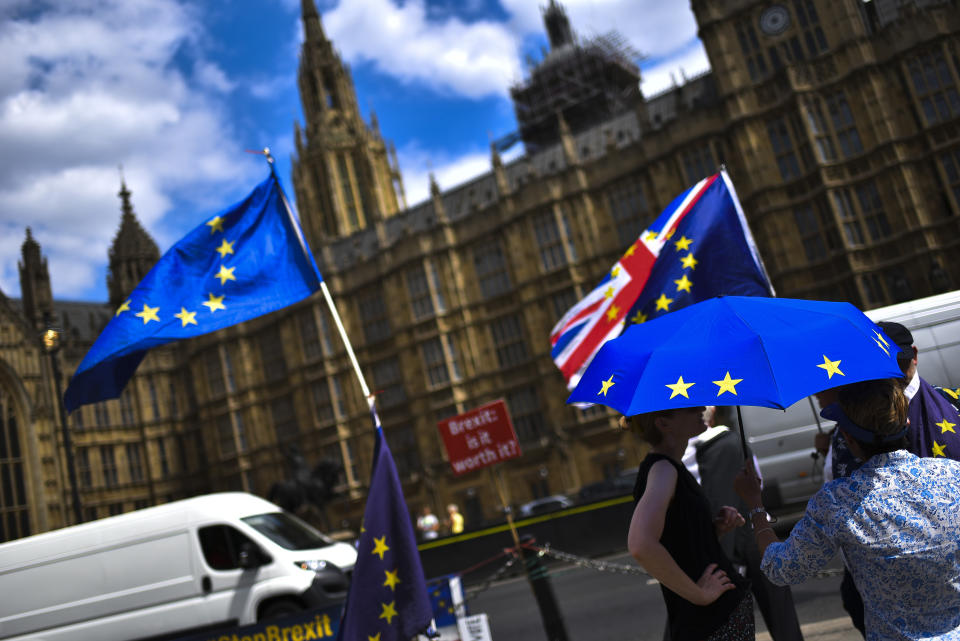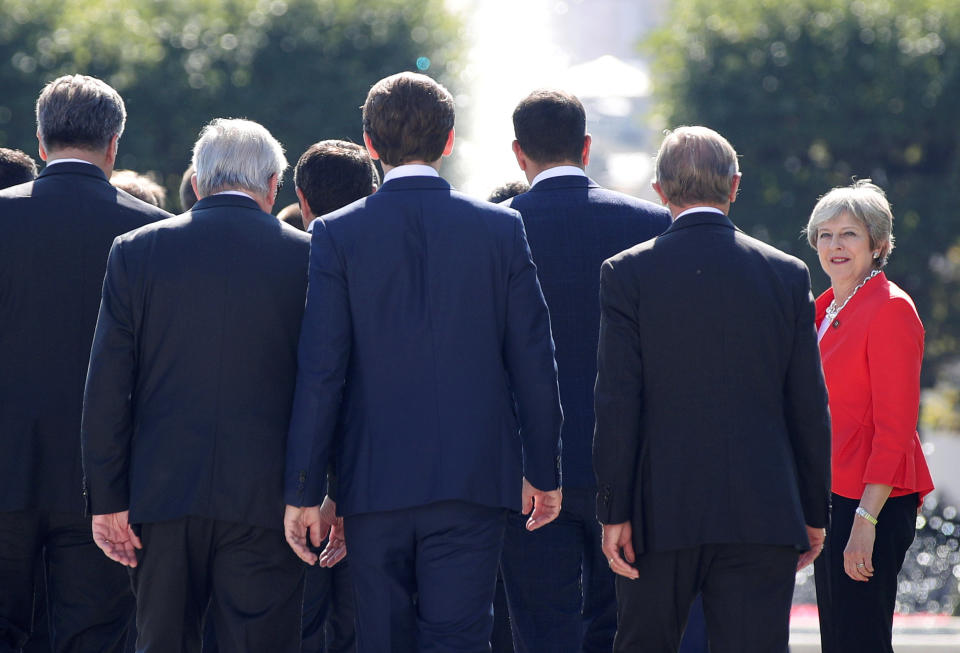Chaos for pets, planes and food: 'Grisly' details of hard Brexit laid bare

The latest batch of Government papers advising British people and businesses about how to prepare for a no-deal Brexit shows that the UK could face food shortages, grounded flights and chaos at the ports.
The release today covers a number of areas, including aviation, motoring and travelling with pets.
In a stinging critique, the Food and Drink Federation said that ‘the grisly prospect’ of no deal involves ‘a severe impact on UK food and drink supplies’.
Ian Wright CBE, FDF Chief Executive said: “While the UK may not run out of food and drink it will certainly be scarcer and more expensive.
“UK shoppers, who have become accustomed to year-round availability of a wide range of safe, high-quality food and drink at all price points, will face a very rude awakening.”

Flights to and from the UK
The UK government has laid bare how European-bound flights from the UK could be grounded in the event of a no-deal Brexit at the end of March 2019. The government said if it’s unable to reach a comprehensive Brexit deal with its European Union counterparts, UK-based airlines would have to seek permission each time they plan to fly from the UK to Europe. This would affect thousands of flights every month.
In an additional blow to air travellers, passengers flying long-haul with a stop off in an EU airport may have to go through security screening again when changing flights, including having bags re-scanned.
Taking pets abroad
Owners of cats, dogs and ferrets who wish to travel with their pets to the EU are advised to take action several months before they wish to travel in a no-deal scenario. Owners will be required to prove that animals are vaccinated against rabies, and will need a health certificate for each pet. This means that owners who wish to take pets to the EU after the Brexit date of 29 March need to seek the advice of a vet before the end of November this year.
Driving in the EU
Motorists will need to carry a ‘Green Card’ proving they have third party motor insurance cover in order to drive in the EU after a no-deal Brexit. The paper admits that although Green Cards are issued free of charge, insurance providers ‘can decide to reflect production and handling costs in a small increase to their administration fees’.
Travelling to Europe by coach
Much like with air travel, UK bus and coach operators would lose their automatic right to access the EU without an agreement, meaning services could be suspended. The Government says while the EU may choose to continue to allow British coaches to carry passengers to the EU this ‘cannot be guaranteed’.
Buying and selling animal products
The UK may be unable to export any animal and animal products to the EU without a Brexit deal, threatening Britain’s £3.1 billion animal product EU export market. The National Farmer’s Union warned that the notices show that no deal would be ‘catastrophic’ for British food and farming.
NFU President Minette Batters said: “These technical notices confirm in black and white what we already knew: a no deal scenario would be catastrophic for British agriculture. A scenario where farmers face an immediate trade embargo for many of their products would have devastating effects, and would severely threaten livelihoods and businesses.”
Hauliers bringing goods to the EU
UK hauliers could be banned from entering the EU if a deal is not put in place, meaning exporters could lose access to the European market. Drivers may need to apply for new permits, although the Government expects demand for these to ‘significantly exceed supply’.
Mineral water
Mineral water bottled in the UK would no longer be accepted for sale in the EU in the Government’s worst-case scenario. UK producers of mineral water would need to apply for recognition of their water in order to maintain access to the 27 countries of the bloc.

 Yahoo Movies
Yahoo Movies 
